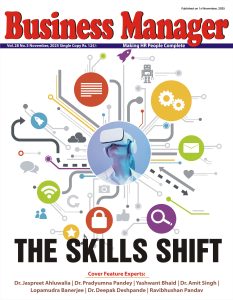Managing the skills shift to avoid exacerbating unemployment- especially as industries evolve due to technological advancement, climate transition, or globalisation-requires a coordinated, forward-looking approach.
Author - Lopamudra Banerjee
![]() spearheads the Human Resources function at Carrier Midea India Pvt. Ltd.(CMI). As the HR Head for CMI, Lopaplays a key role in contributing to the growth of the India business. She has been supporting the business by developing and executing an effective HR strategy and has been instrumental in enhancing the position of the HR team in the organisation as one of the major levers to achieve business success.
spearheads the Human Resources function at Carrier Midea India Pvt. Ltd.(CMI). As the HR Head for CMI, Lopaplays a key role in contributing to the growth of the India business. She has been supporting the business by developing and executing an effective HR strategy and has been instrumental in enhancing the position of the HR team in the organisation as one of the major levers to achieve business success.
The role of HR is becoming more critical than ever- ranging from AI integration to workforce polarization-and demands leadership that balances compliance with innovation.
It is very difficult for HR & the organisation to keep themselves away from treating this as a purely personal matter as it is bound to impact colleagues around the two involved in this kind of a relationship.
As the organisation of the future takes shape and employee experience occupies centre stage, HR should be the driving force for many initiatives: mapping talent to value; making the workforce more flexible; and developing an HR tech ecosystem etc.
I don't agree that the middle management is responsible for their plight. Organisations have a responsibility to ensure that the middle management which is the backbone of an organisation thrives. The first and most important mechanism I feel is continuous and transparent communication.
HR needs to set quantitative goals and devote appropriate resources toward achieving innovation. Welcoming feedback from customers and key stakeholders in developing new HR strategies to meet business needs is also an important step in that direction.

















